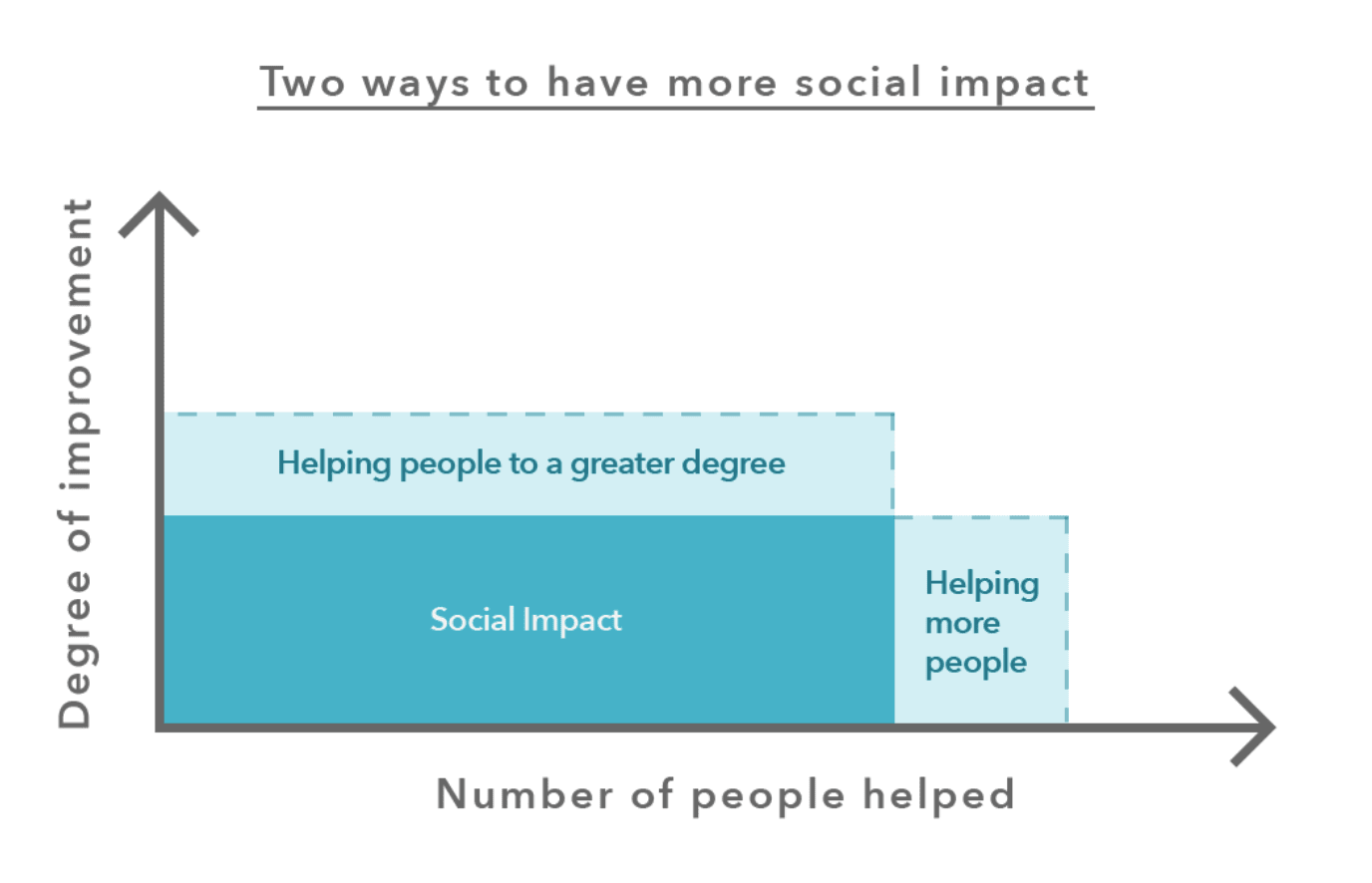what do you mean by "good"?
By KvmanThinking @ 2025-05-12T14:43 (+3)
You want to maximize the "good" you do in the world. What definition of "good" do you use for this? What definition of moral correctness do you use, and wouldn't it get sufficiently Goodharted if you try, with numbers and probabilities and whatnot, to maximize it?
Mo Putera @ 2025-05-12T15:28 (+2)
(I'd caution against truly maximising.)
Ben Todd's 80K article What is social impact? A definition is a pretty decent start:
If you just want a quick answer, here’s the simple version of our definition (a more philosophically precise one — and an argument for it — follows below):
Your social impact is given by the number of people1 whose lives you improve and how much you improve them, over the long term.
This shows that you can increase your impact in two ways: by helping more people over time, or by helping the same number of people to a greater extent (pictured below).

And their more rigorous definition:
“Social impact” or “making a difference” is (tentatively) about promoting total expected wellbeing — considered impartially, over the long term.
We don’t think social impact is all that matters. Rather, we think people should aim to have a greater social impact within the constraints of not sacrificing other important values – in particular, while building good character, respecting rights and attending to other important personal values. We don’t endorse doing something that seems very wrong from a commonsense perspective in order to have a greater social impact.
In fact, we even think that paying attention to these other values is probably the best way to in fact have the most social impact anyway, even if that’s all you want to aim for.
The rest of the article elaborates on what they mean by all the terms in their rigorous definition.
80K also note that this doesn't just reduce to utilitarianism:
Is this just utilitarianism?
No. Utilitarianism claims that you’re morally obligated to take the action that does the most to increase wellbeing, as understood according to the hedonic view.
Our definition shares an emphasis on wellbeing and impartiality, but we depart from utilitarianism in that:
- We don’t make strong claims about what’s morally obligated. Mainly, we believe that helping more people is better than helping fewer. If we were to make a claim about what we ought to do, it would be that we should help others when we can benefit them a lot with little cost to ourselves. This is much weaker than utilitarianism, which says you ought to sacrifice an arbitrary amount so long as the benefits to others are greater.
- Our view is compatible with also putting weight on other notions of wellbeing, other moral values (e.g. autonomy), and other moral principles. In particular, we don’t endorse harming others for the greater good.
- We’re very uncertain about the correct moral theory and try to put weight on multiple views.
Read more about how effective altruism is different from utilitarianism.
saulius @ 2025-05-12T15:08 (+2)
I try to maximise happiness (in the broadest meaning of the word), and to minimise suffering (again, in the broadest meaning of the word). Goodharting would be to say that by far the best outcome for my values would be to turn everything in the universe into hedonium (a homogeneous substance with limited consciousness, which is in a constant state of supreme bliss). That doesn't sound like a great outcome to me, so yes, it can be goodharted. It shows that my actually values are more complex than just caring about happiness and suffering. But it is usually a good-enough proxy for what I want.